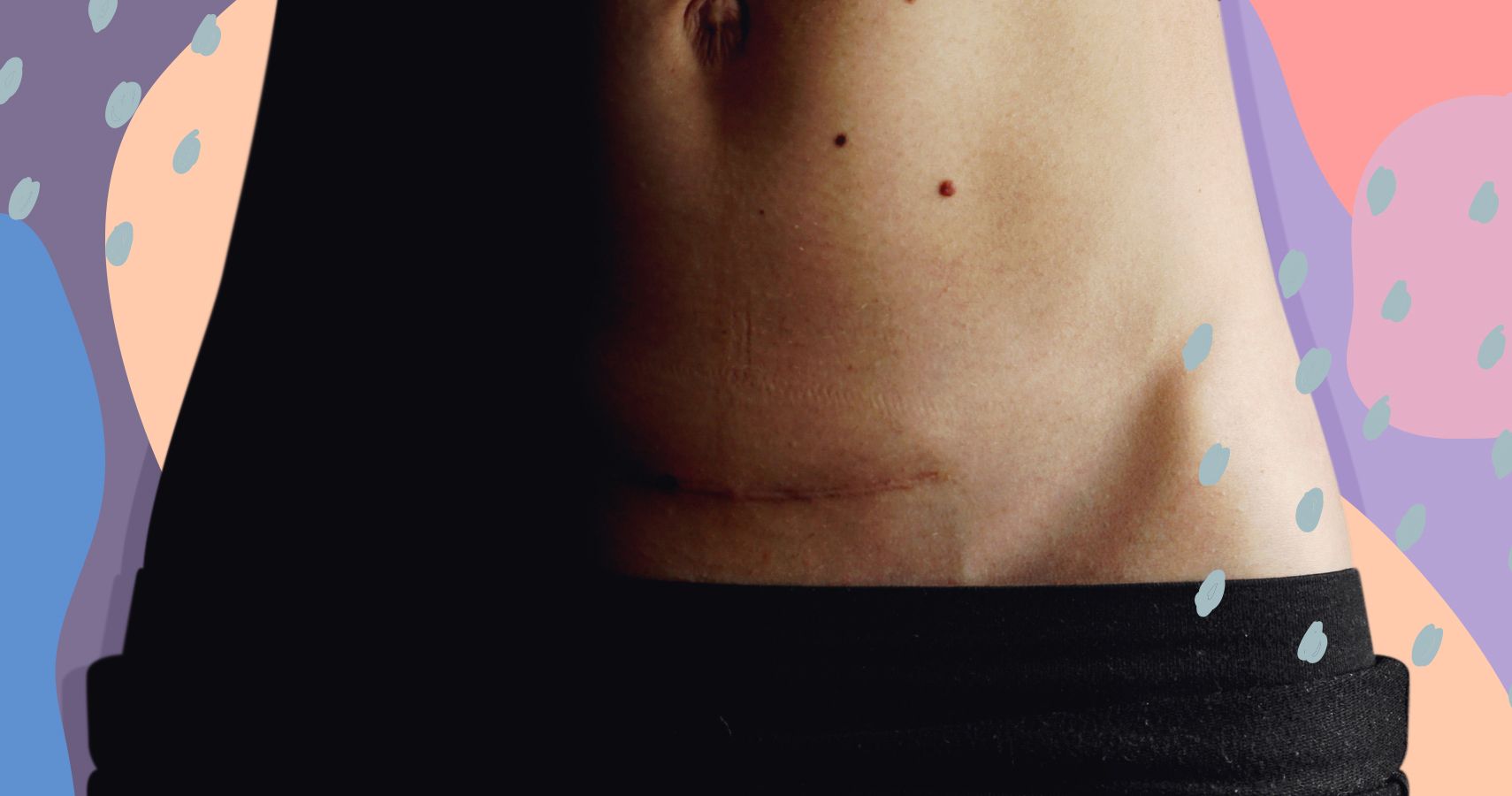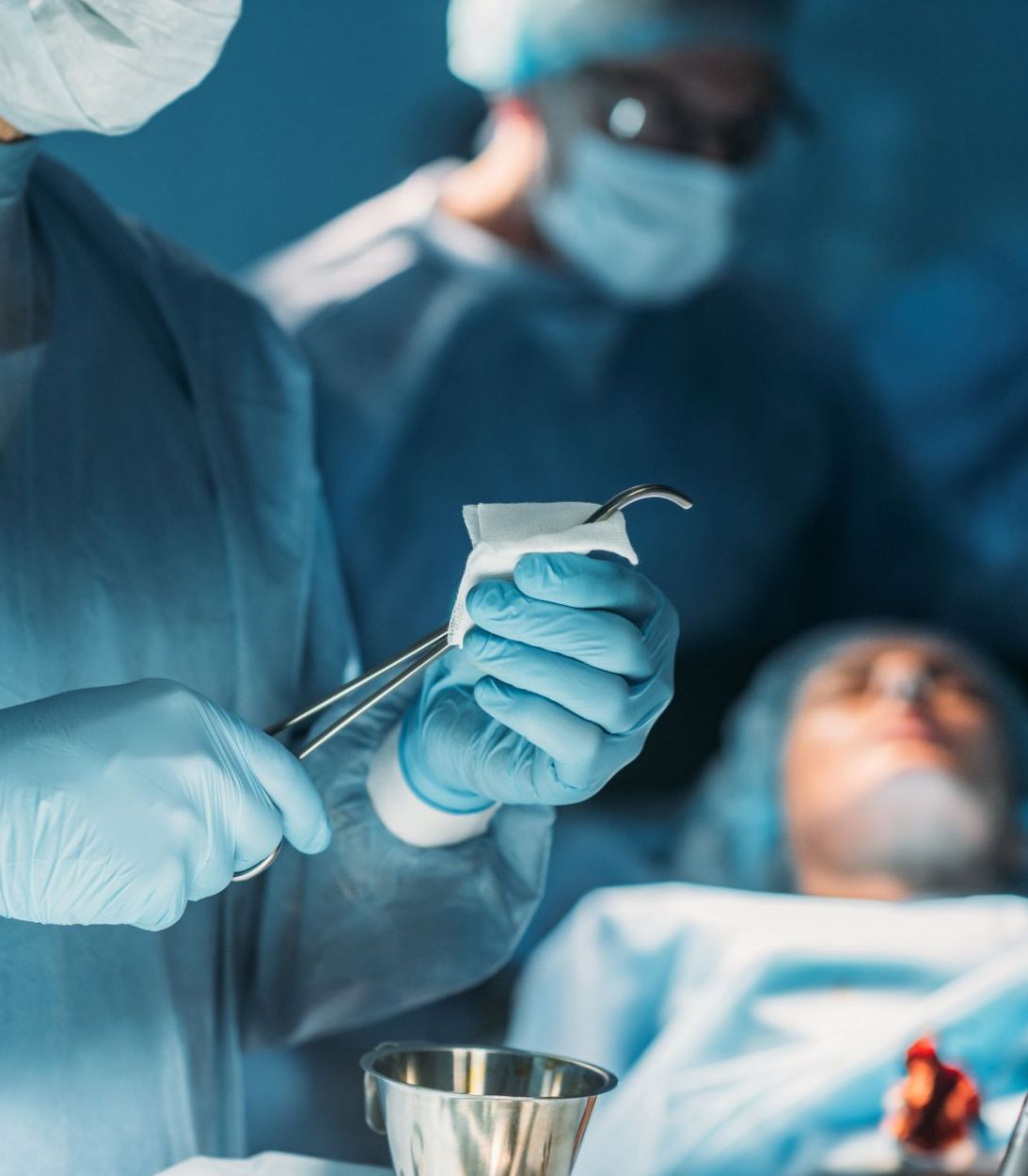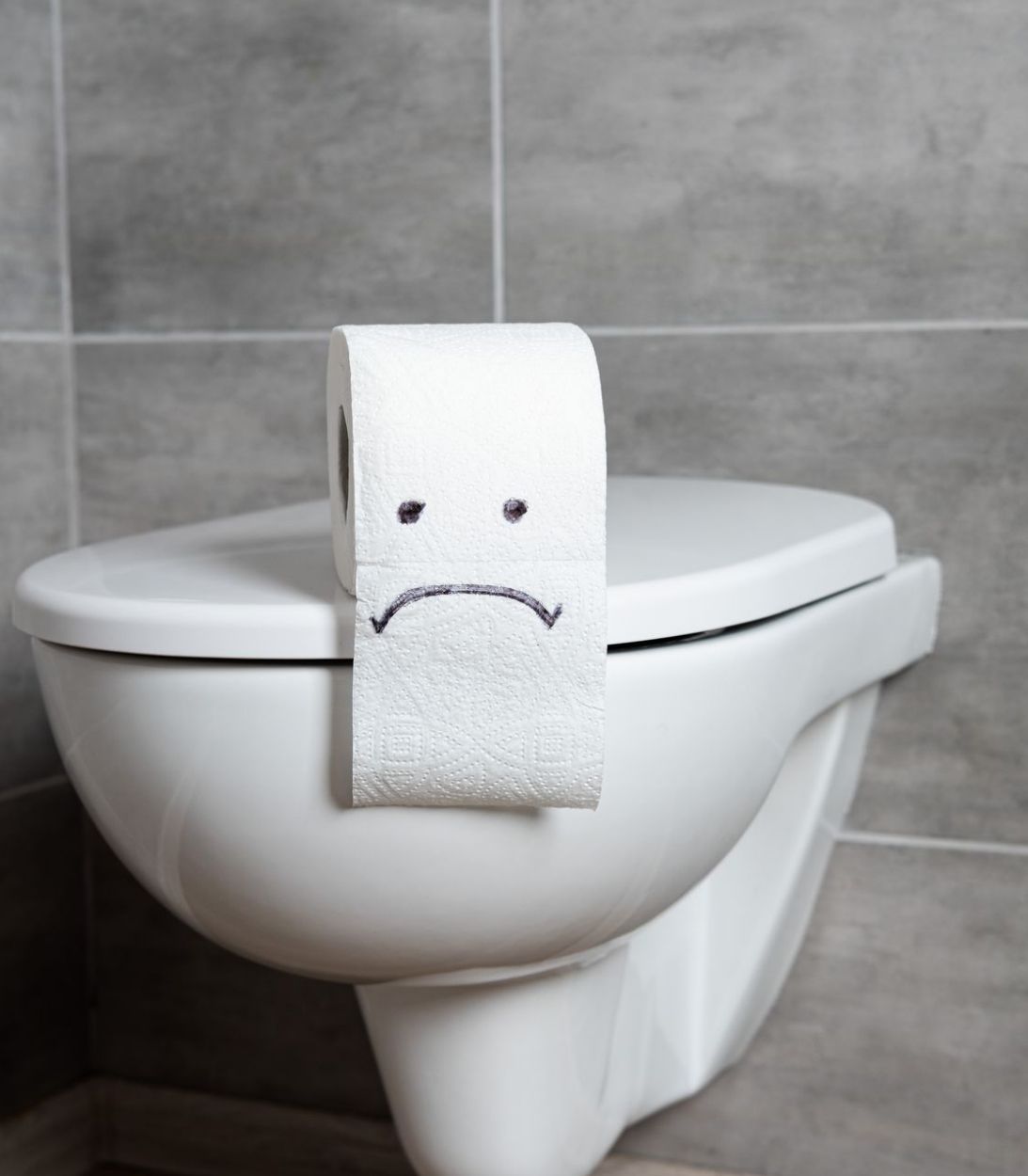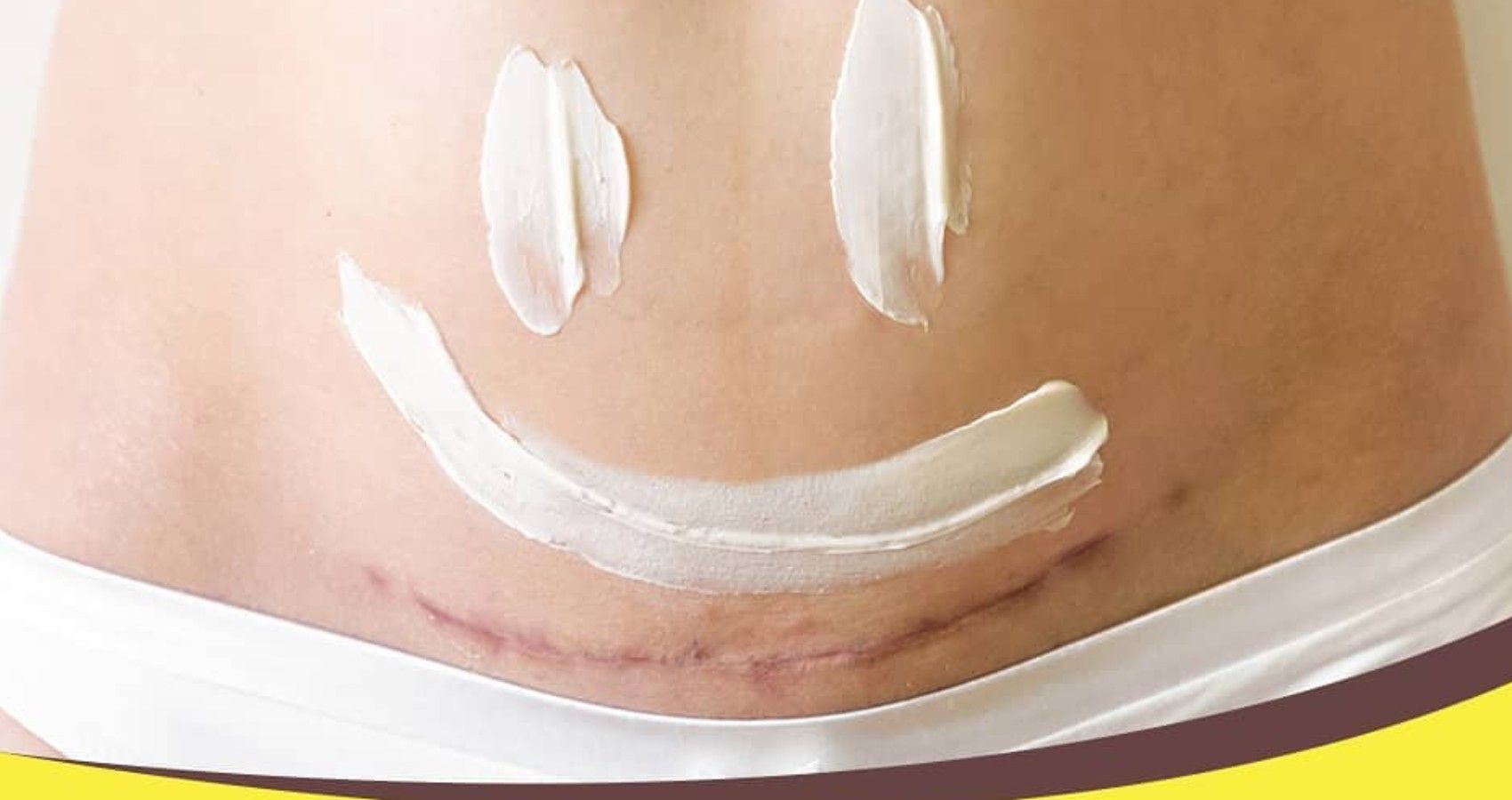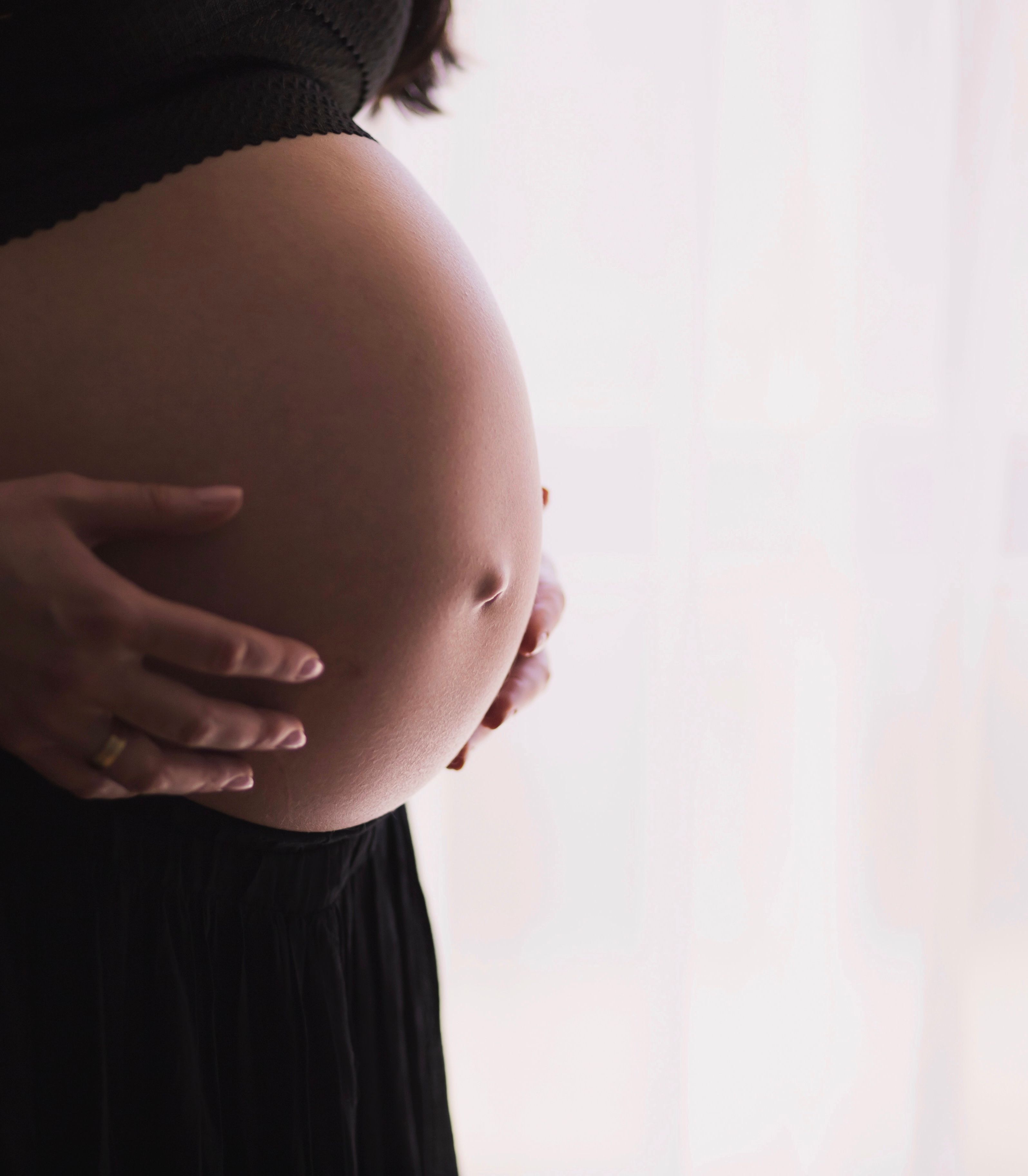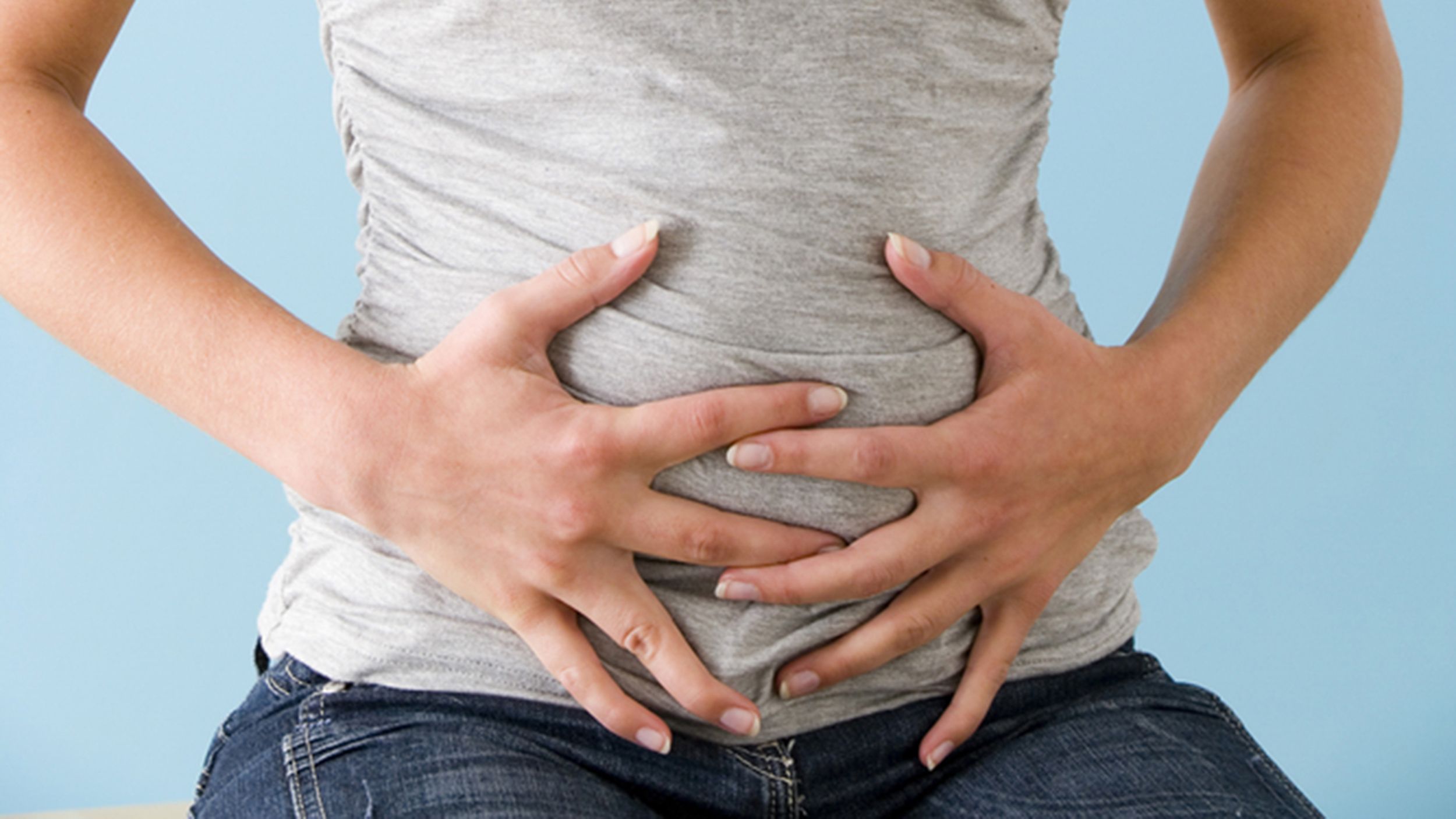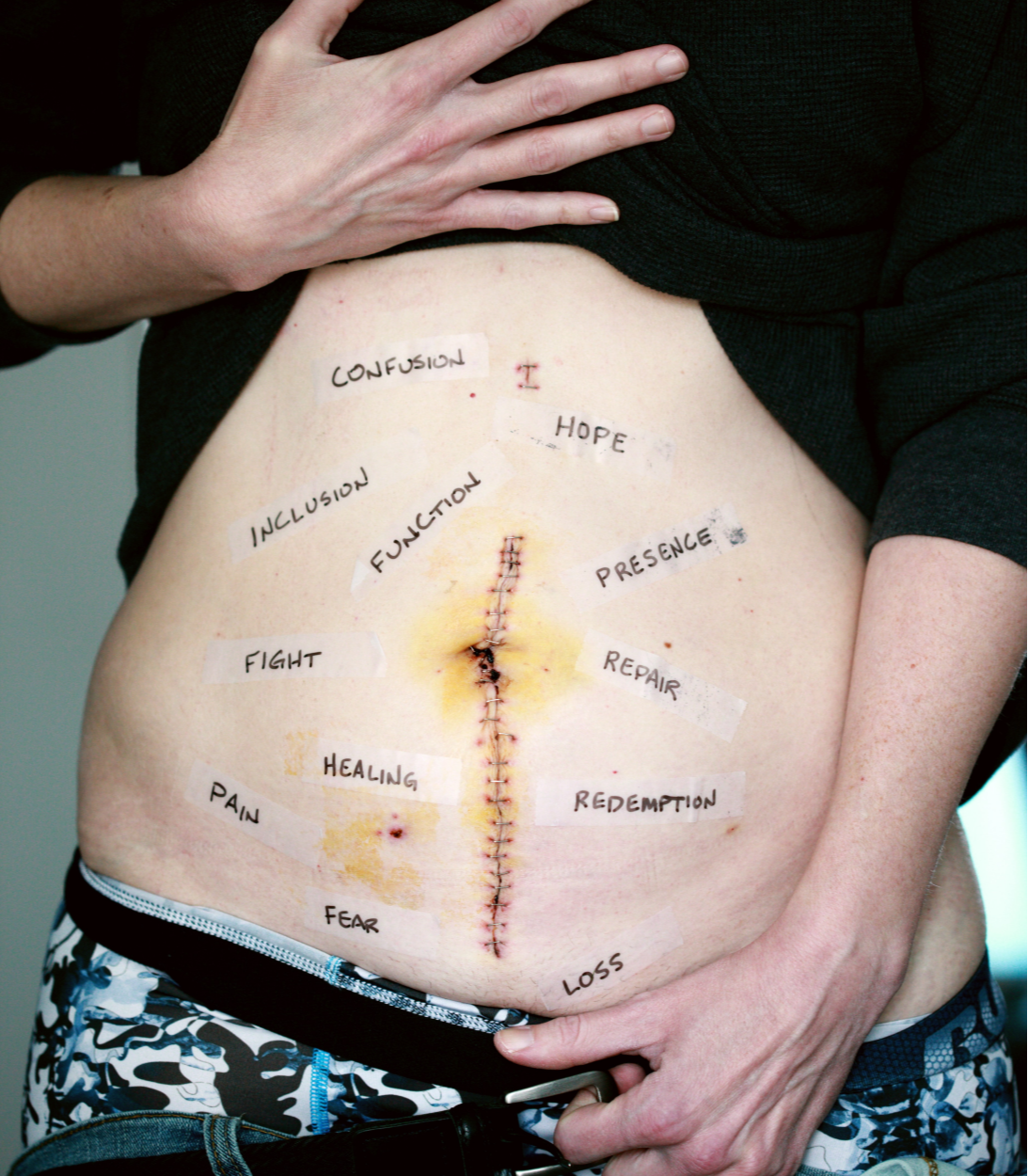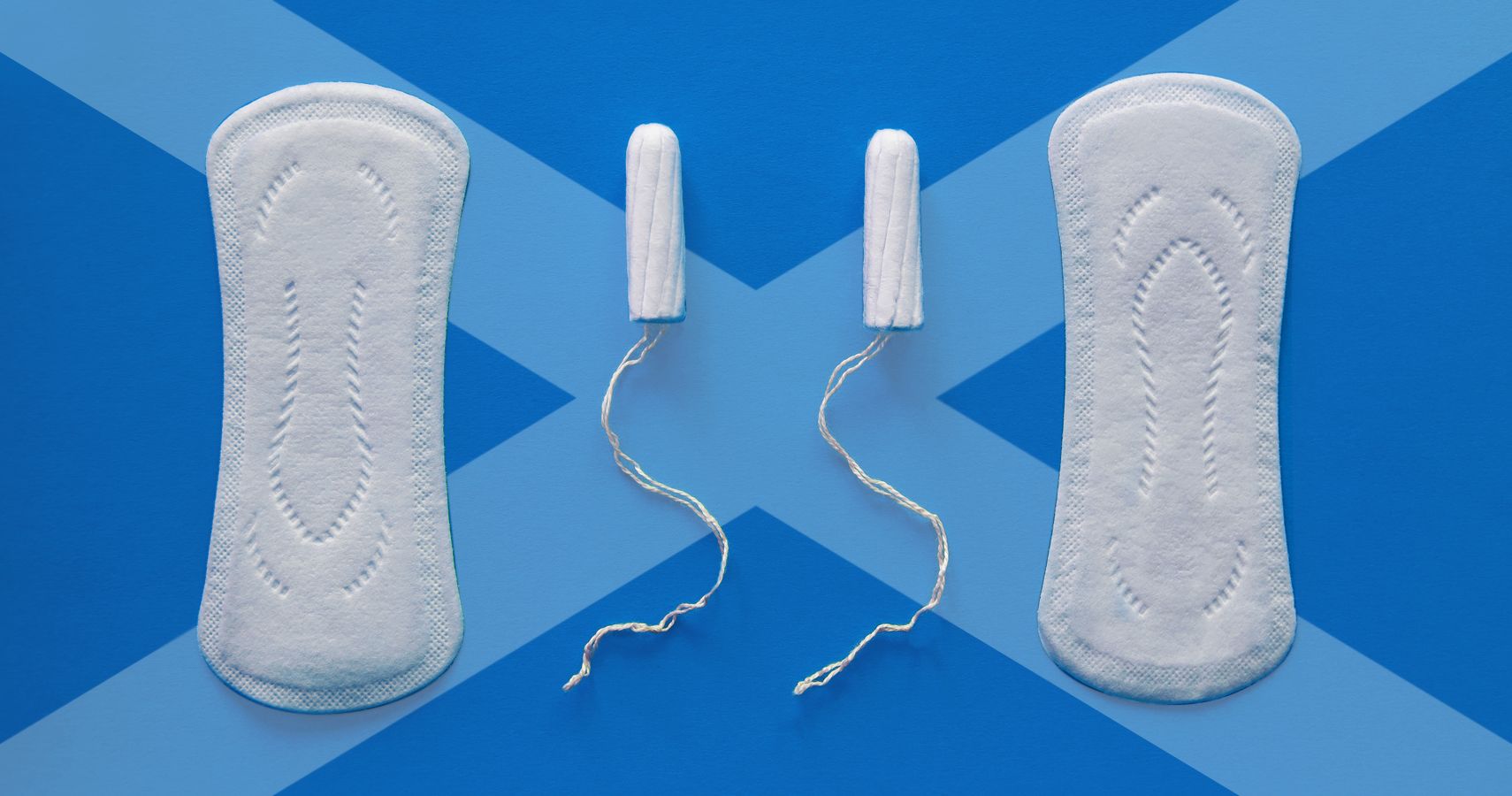This article was originally published on May 29, 2018. It was updated on January 24, 2021 by Ashley Wehrli.
Though c-sections are becoming more and more common, the procedure can negatively impact moms, and their health, for a lifetime. It is definitely not the easy way out. Cesarean sections have become common among many moms-to-be due to personal health issues, emergency situations and pregnancies with multiples. Though some people see c-sections as being the easy way out or not really giving birth, these unfortunate statements hit home to the mom's who have struggled through their pregnancies or had no choice but to have this surgery.
Recovery from a c-section often doesn’t stop days or weeks after the baby (or babies) have been delivered. Not only do new moms struggle with stress following c-section surgery, they also must deal with the frustration that comes with caring for a newborn while dealing with scar and incision pain. For many, c-sections impact women for much longer than it takes to recover from the initial surgery. It can be a lifelong journey that a mom must face alongside the raising of their child or children.
If you are experiencing complications or would like to have more in-depth information on your own personal medical history, we recommend that you consult your doctor immediately.
20 Fear Of Judgement
Since many people still have negative views on c-sections, moms often feel looked down on for having the surgery - even if it was the safest choice for both baby and mom. Social media, friends and sometimes family can make hurtful comments that can minimize mom's feelings about her birth. Since these unfortunate thoughts and comments occur, it leaves the mother feeling judged and almost embarrassed when they should feel thrilled to begin their adventure into motherhood.
Emotional strains from any kind of surgery linger with a person and c-sections are not any different. Even years after the surgery, moms may still feel as if they are being judged for having the c-section, whether it was due to an emergency situation, a health reason or a personal choice. It is not fair to the woman, family and the baby to feel as if they are being judged, but it can be an unfortunate effect of having the surgery.
19 Premature Hysterectomy Need
According to Mayo Clinic, women who have had one or more c-sections in their lifetime are at a greater risk of needing a hysterectomy later on in life. This often is due to the scarring of internal tissues rooted with the initial cesarean surgery the mother has. The more scarring there is, the more likely there may be issues moving forward when it comes to the functioning of surrounding organs.
It is crucial for people to remember that a c-section is major abdominal surgery. A hysterectomy is also major abdominal surgery. Though having a c-section helps bring beautiful bundles of joy into the world, it also may be the reason behind needing to get another surgery that will stop future pregnancies from occurring, such as a hysterectomy. Again, many women do not have a choice when it comes to c-sections and if they do, it is often strictly for the health and safety of the baby and mother. But it is important to remember that if you have one or two c-sections, it could be the last if complications do occur.
18 Repeat C-Sections
Though it is possible for c-section Moms to deliver their next child vaginally, it is more common than not for the second delivery to end up being yet another surgery. One major reason is that scar tissue can be compromised when trying to push during a vaginal delivery, especially if the last baby was born within a couple years of the current pregnancy.
There are other reasons women may need a second c-section after the initial one. Age, weight, current health conditions and the health of the baby all play a critical role in whether or not the woman will need to have that additional c-section. According to The Atlantic, 7-9 women out of a thousand who go into labor after one c-section may experience a rupture if they attempt to go the vaginal route. Though this is a rare happening, it does still occur and women need to take their personal health into account.
17 Trouble Conceiving
Major surgeries cause scarring to the surrounding organs and tissues when the recovery process unfolds. Though scarring is part of the healing process, it can pose issues for couples trying to become pregnant again. This is because the scarred tissues can connect to surrounding organs (such as the bladder to the uterus) and make the conception process nearly impossible or incredibly painful, according to Healthline.
Even if women do end up conceiving, they can also experience implantation in unsafe areas, which can make the pregnancy incredibly high-risk for both the baby and mother. Bacteria can build up around the scar site or around the scarred tissues, making the conception process an even more difficult one to manage. For the women who struggle with c-section recovery (and many do), struggling to become pregnant can bring forth even more emotional strains.
16 Bathroom Problems
No one likes to talk about what goes on behind closed bathroom doors. Unfortunately, after you have a child, all of your privacy flies out of the window, as you need to speak with your doctors and potentially partner about what's going on in there. Many people believe those who have c-sections do not experience these kinds of issues, but that is just a myth.
Bladder cramping, unexpected pains, and spasms occur for some women after a c-section as well as the occasional accident, according to Very Well Health. Though these issues are common for many women, it can be especially prevalent for women who struggle from c-sections. Because the pelvic floor is not strong after a c-section, these accidents can occur more often than women would like them to.
15 What Is An Adhesion?
Adhesions can occur after any type of surgery and c-sections are no different when it comes to the possibility of adhesions making an appearance. According to E Medicine Health, “adhesions typically begin to form within the first few days after surgery, but may not produce symptoms for months or even years”. These lesions can create blockages and if they go unnoticed, can sometimes lead to the death of tissues after stopping blood flow to critical organs.
During the healing process, the c-section scar can form adhesions if not appropriately cared for. Even if moms do pay close attention to the care of their scar site, sometimes adhesions unfortunately just occur because of how the body reacts to such intense change. Other organs in the reproduction realm that may also form adhesions can be the uterus and Fallopian tubes – both very important organs when it comes to future pregnancies.
14 "One And Done"
Some mothers do not have a great story to tell when it comes to having a c-section. This is because the surgery can either traumatize them or they may have a painful recovery. It can also be from their lack of control during the procedure since it is a very sterile, almost robotic situation. Recovering from a c-section is different from recovering from other surgeries because the mom is filled with overwhelming emotions after delivering their child. They want to be there and care for their newborn but have difficulty doing so because they are in pain and unable to move around as they used to prior to the surgery.
Because of the experience, some women go from wanting a huge family to deciding that one child is more than enough. According to The New York Times, women who have a c-section are less likely to want more children versus women who have a vaginal birth. Though that is an absolutely fine way of thinking, it can sadden women who had always wanted larger families and see the possibility of future c-sections as getting in the way of this dream.
13 Placenta Problems
When certain cells (trophoblasts) begin growing in the uterus after implantation, they sometimes may not do exactly what the body wants them to do after a c-section occurs. They can sometimes spread to other organs as well as the c-section scar site. This is called placenta accreta and can complicate future pregnancies when women begin to try to conceive, according to OBGYN Online Library. Placenta previa is a condition when the uterus covers a large amount of critical reproductive organs, causing difficulty for conception as well.
Though placenta accreta and previa are very common for women who have had c-sections, doctors are easily able to recognize concerns surrounding these issues. Women who have numerous c-sections often have a much higher possibility of facing these types of placenta issues, but medical research truly has made it so the possibility of this occurring is slimmer than it has been in the past.
12 Emotional Struggles
The hormone overload women experience during pregnancy doesn’t go away right after the delivery of a baby. It often takes months for hormones to regulate again and even when they are regulated, they do not go right back to how they were before. Hormonal changes impact the body for a long period of time and some women have great difficulty handling those emotions, especially after major surgery occurs, according to VBAC. With large life changes comes large emotional changes as well.
No matter how a baby is delivered, childbirth is emotionally scarring. For women who experience a c-section, recovery can bring forth even more unexpected emotions. Discomfort and frustration of recovery continue days and weeks after surgery and if a mother is also stressed with being a new parent, those stressors can linger for quite some time. If a woman knows she already struggles with mental illness before the birth of her little one, being fully prepared for the hormonal overload that follows is important. Seeking professional counseling and additional support from friends can provide a new mother with a necessary emotional outlet.
11 Infections
Infections are unfortunate realities in most people’s lives, especially when you have a child. With immune systems that are still developing, children can easily become infected with illness or infections. The same goes for mothers after having a major surgery such as a c-section. The scar site and surrounding tissue does not always heal as beautifully and perfectly after surgery as many hope. Even years after the scar has been stitched up, infections can arise and cause unexpected frustration and illness. Infections can occur on the layers of skin surrounding the scar which can be incredibly painful and sometimes lead to abscesses if not immediately cared for. According to Research Gate, this is rare but it can happen.
10 Post Partum Depression
Many women hear and read about postpartum depression, but do not always expect it to happen to them. Some moms-to-be don’t always understand how they could possibly become upset or depressed after delivering their beautiful baby, especially if becoming a mother is something they have always wanted. With a c-section comes recovery and with recovery comes incredible pain, exhaustion and frustration from being unable to care for your little one as effortlessly as hoped. When a new mom is unable to move around quickly and comfortably to care for their newborn because their own health is interfering, unexpected depression may set in without warning.
Common symptoms of postpartum depression include anxiety, exhaustion, uncontrolled sadness and thoughts of suicide during the weeks and months after the birth of a child, according to WebMD. Those dealing with the side effects of a c-section often feel helpless when they need assistance with day-to-day tasks during recovery. This helplessness can lead to postpartum depression symptoms and by reaching out to a counselor before the surgery takes place, a new mom can become more prepared.
9 Sepsis
Sepsis is a bacterial infection that starts in the uterus and spreads into the bloodstream and body. This infection often starts with a dangerously high fever, chills, rapid heart rate and rapid breathing. Though sepsis can often be treated with antibiotics if caught early, it can grow into something known as septic shock, according to Healthline, that can become even more dangerous to the human body and, at times, fatal.
However, fatalities from septic shock are incredibly rare. It is important for women who have experienced c-sections to be aware of their ever-changing bodies and pay close attention to their own needs. New moms become so engulfed in how their little one is feeling they sometimes do not pay close enough attention to their own personal health. By keeping yourself in check, you will be able to treat any health issues that arise before they become worse.
8 Recurring UTI's
No one likes experiencing a UTI, especially when you are pregnant. Even after the baby is out, a UTI is something no one wants to experience and many mothers experience frequent postpartum UTI’s. Women who have had c-sections have weaker pelvic floor muscles which causes muscles not to be as strong as they should be. This weakening of muscles can cause urine to hang out inside the urinary tract for longer than the body should hold it for leading to recurrence of UTI's, according to Medscape.
Women should look out for fatigue, fever, pelvic pain and the strong urge to have to run to the bathroom – but with not much happening once in there. Since c-section mamas already struggle with weakening pelvic floors, UTI’s can be more prevalent and more painful. Antibiotics and medications do help, but as many know, these infections are definitely not enjoyable.
7 Weakened Abdominal Muscles
Since a c-section is major abdominal surgery, the abdominal muscles are faced with quite a bit of stress and strain when the delivery occurs. It takes a long time before those abdominal muscles start acting like abs again. Sometimes, it takes much longer than weeks and months for those muscles to work as they once did and for many mothers, the surgery impacts the site area for the rest of their lives. When muscles are compromised, like abs are during a c-section, they have to learn how to behave like the fully functioning muscle they once were.
Many women experience ongoing muscle tension and weakening for the remainder of their lives and if they do not seek out professional guidance (such as physical therapy) to help strengthen their pelvic floor, they will not be able to gain the strength back they once had. According to Dr. Graham from Finish Line Physical Therapy, “tissues and muscles that have been damaged during a c-section need to be rehabilitated just like any other orthopedic procedure to help regain proper stability and function for women”. People often do not think about physical therapy when healing from a c-section, but seeking out this kind of treatment can help strengthen those muscles so they are able to recover quicker and with less long-term struggles.
6 Scar Concerns
Every surgery leaves a scar and a c-section definitely leaves one after the procedure. Caring for the scar is a lifelong experience because if it were to rupture or become infected, even years down the road, it can critically impact future pregnancies. According to Medline, if a mother has to have a vertical incision, she will need repeat c-sections for every one of her future births. Though many medical professionals now make the incision one that can be easily hidden by a bikini bottom, sometimes the surgery doesn’t always go as planned and alternative incisions need to occur for health and safety reasons.
Some women are terrified of surgeries and the scars that come with them. If you are someone who has this fear (whether due to past surgeries or personal demons), the idea of having another c-section can be traumatizing. Some moms also do not like the idea of having their scar and try to cover it up with creams and antidotes. However, a c-section scar is not just a mark or scratch – it is a major incision. Moms should look at their scar as something that gave them the most beautiful gift they could have ever been given, not something that will hand them stressors as they move forward into motherhood.
5 Endometriosis
Endometriosis is when uterine tissue is connected to surrounding organs in the body. This often causes extreme pain and difficulty when trying to conceive. Not only can this occur to women who have yet to become pregnant, this can also become an issue for women who have experienced c-sections. Though endometriosis can be treated with antibiotics, it also can sometimes need additional procedures completed so the tissues are fully removed. Like all medical procedures, this can result in ongoing complications or scarring.
According to the US National Library of Medicine, this condition “can be a direct consequence of a cesarean delivery and chances are 5 to 20-fold increased for women who’ve had cesarean deliveries”. However, this condition is one that can often be treated even years after a mother has a c-section. It is important to remember that though many diagnoses can be treated, there are some that cannot be. Every human body reacts to treatments and surgeries in unique ways and having a c-section (and a baby, for that matter) impacts the body differently for everyone.
4 Weight Gain
With surgeries come uncomfortable recoveries and c-sections are not always the easiest to recover from. Many women struggle to regain their abdominal and surrounding muscle strength even years after the surgery. That sometimes leads to weight gain due to women having difficulty with movement or exercise. This weight struggle may lead to feeling defeated; Women's Health Magazine tells women who have had a c-section to be patient with themselves. Women may feel as if their bodies have given up on them so they begin to give up on their bodies in return. They may stop trying to exercise or trying to seek out help that could push them in a positive direction.
This depression can make Moms lose interest in even putting forth effort to try and lose some of the weight they may have gained after their pregnancy. Moms should not feel defeated or frustrated if their bodies do not go right back to that pre-pregnancy mode. It is almost impossible for that to even happen because the body has been through such an enormous change that it truly will never be the way it was, and that is okay.
3 Atony
A woman’s body does a lot of crazy things once the baby, or babies, have been delivered. The uterus needs to go back to how its pre-pregnancy form was and sometimes the body has a tough time adjusting to that change. According to Healthline, uterine atony occurs when the uterus does not contract back to its original form and it stays relaxed. This is very common amongst women who have twins or triplets
When this happens, bleeding can occur and reoccur if not treated immediately. Though there are many medications that professionals use to help bring that pre-pregnancy muscle-memory back to the uterus, if the hemorrhage does not improve, other surgeries may have to occur, a hysterectomy being one of them. However, these cases are incredibly rare. Atony is a very treatable condition and once treated, Moms can move forward without issues. It is important, though, for women to pay close attention to how their body reacts and feels after major surgery and if they have any concerns or speculations, to contact a doctor immediately.
2 Fear Of Detachment
Every new mom wants to feel fully connected to their newborn the moment they hold him or her in their arms for the first time. They want to feel that immediate maternal instinct set in and meet all the needs of their new bundle of joy without needing to ask any questions. Though these hopes are possible, it is not common for many. According to Sutter Health, this "lack of bonding" is partially due to the lack of immediate skin-t0-skin contact right after birth.
Many new moms do not feel fully connected to their child for weeks or months after delivery. When a new mom has a c-section, they often fear that the surgery itself already put a barrier up when it comes to feeling that initial connection. Some c-section moms fear that because they did not push out their child or have their baby naturally (and many despise that statement altogether) they will not feel that initial maternal attachment for some time – or ever.
1 Menstrual Complications
Hormones, hormones, hormones. After a baby is delivered, hormones don’t stop overwhelming a woman’s body. They may continue to make a new mom feel emotional and moody and, more often than not, they also may mess with the return of that darn menstrual cycle. Since a c-section directly impacts the reproductive organs, it can play a major role in how a woman’s body reacts to the return of their period. Breastfeeding, medications and physical movement all play a part in how a new mom’s menstrual cycle will be.
Depending on a number of these factors, a new mom may not experience their period for six months or even a year at times after delivery, according to Parents. Though women see this as being an exciting addition to having their baby, it also can be emotionally stressful because it means those tricky hormones are still raging throughout the body. This can lead to difficulty with future pregnancies and the regulating of those hormones long after the baby has been born.
Sources: Mayo Clinic, The Atlantic, Healthline, Very Well Health, The New York Times, OBGYN Online Library, VBAC, Research Gate, WebMD, Healthline, Medscape, Finish line Physical Therapy, Medline, US National Library of Medicine, Women's Health Magazine, Healthline, Sutter Health, Parents

